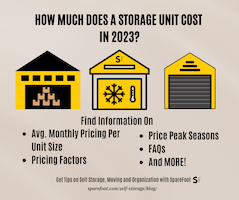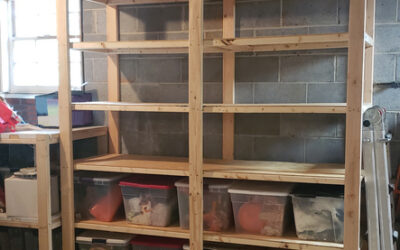Several years ago I relocated to Los Angeles for a while, and I moved into a loft downtown two blocks away from Skid Row. Although I really loved living down there, I’m not sure I would have ended up in that location had I been more Internet savvy about choosing a neighborhood. In the incredible digital age we live in, with a few minutes and a web connection, you can learn a lot about a neighborhood before ever stepping foot in it.
Once you have settled on moving to a particular city, the biggest challenge is to find neighborhoods that are compatible with you and your family’s lifestyle. Thankfully there are a number of online neighborhood finders that make it easy to find great neighborhoods. Many of these online tools have data on just about every neighborhood in the entire United States, making it easy to do your due diligence on public schools, walkability, and real estate before finally choosing a home.
We’ve scoured the web to find the best neighborhood finders online to help you find your next home. Here they are, in no particular order:
1. NeighborhoodScout
NeighborhoodScout is a great starting point for finding your next neighborhood. While aimed primarily at real estate investors, the site offers detailed data that anyone can use when evaluating a potential home purchase.
Search for any city or zip code to view a color-coded map of different neighborhoods. You can toggle between maps that display the most expensive neighborhoods, highest appreciating neighborhoods, income growth by neighborhood, safest neighborhoods and best neighborhoods for education.
To drill down and get more detailed information on a particular neighborhood, you’ll need to pay per report or sign up for a subscription. While expensive, NeighborhoodScout is known for their data integrity so it might be worth the expense if you want a really detailed look at potential neighborhoods you are considering.
2. HomeFair
HomeFair doesn’t have any glitzy mapping features, but it does offer quick access to basic information by Zip code. This site is perfect if you don’t want to get overwhelmed with too many bells and whistles and just want to get straight to the most important information, and best of all it is all free. School reports, vital statistics and a cost of living comparison are all available at the Zip code level.
3. Realtor.com
Realtor.com offers a map view designed to help you find your ideal neighborhood. Search by city or Zip code to see the map and navigate through the various layers. Their map displays home values, housing market movement, school ratings, for sale homes, and top-ranked businesses. There is also a layer that displays neighborhood level crime data.
4. HAR
HAR.com provides another quick resource for vetting neighborhoods that you have in mind. Enter the name of the neighborhood in the search field and click through to see a dynamic snapshot of the housing market there include the number of homes for sale, average price, average square foot, and so on. The page will also display a map showing the neighborhood boundaries, a list of nearby schools with ratings, and a directory of nearby attractions with ratings.
5. Niche.com
Niche is perhaps one of the most comprehensive sites, offering detailed neighborhood reports for communities across the country. Look up a major city and you can access a map of neighborhoods. Click on a neighborhood to visit its profile. Niche is unique because each city and neighborhood is given an overall grade (ex: A, B+, C-) that takes into account schools, quality of life, housing, nightlife, outdoor activities, and other factors.
Another unique feature is that it allows users to leave reviews for neighborhoods using a five-star system. These reviews can be very helpful as far as getting a variety of perspectives about a neighborhood before you invest.
6. Trulia
Trulia is known as a great site for finding homes for sale or properties for rent, but it also features a multitude of map layers that make it a great resource for researching potential neighborhoods. In addition to schools and crime, Trulia also maps everything including average commute times, fire risk, ratio of owner-occupied homes, FEMA Flood Zones, and more. Trulia is seriously an invaluable tool when it comes to fully evaluating a potential neighborhood.
7. City-Data
City-Data is one of the original neighborhood finders and it is still one of the best. Don’t let its old school layout fool you, there is a wealth of information here. Find the city or town you are interested in and use the map to review a wellspring of statistics including election results, house heating fuels, percentage of government workers, air pollution and much more. There are also dozens of charts detailing weather, crime, demographics, real estate, local industry, and more.
8. Walkscore.com
Walkscore.com is a very useful tool for evaluating the “walkability” of a potential neighborhood. Enter an address to find its Walk Score, measured on a scale of 1 to 100. The higher the score, then the more destinations there are in walking distance. Many people prefer to live in neighborhoods where they don’t have to depend on a car to run all of their errands, so this site is particularly useful for finding such places. Another useful tool is a map that shows a radius of how far you can walk, bike, or drive in a set number of minutes.
9. Hoodmaps
Looking for a more biased and humorous look at a local area? Look no further than Hoodmaps. This crowd-sourced mapping tool allows users to tag areas on the map with the following labels: Hipsters, Rich, Suits, Students, Normies and Tourists. You will also see more specific and highly judgmental descriptors. For example areas in New York City are marked as “Chinese men playing chess”, “Art girls”, and “Tourists looking for pasta”. It is a bit of a mess, but also a lot of fun.
10. Reddit.com
If you are heading to a new town or city, visiting the local subreddit is a must. Searching the Reddit homepage is the easiest way to find the subreddit you are looking for. Once you land there, check the sidebar for a FAQ. This will typically highlight the best threads containing information about the best places to live and what to expect as a new local. Some cities have more active communities than others, so there is a chance you might not find anything useful right away. If you don’t find what you are looking for, then add a new post and ask whatever questions about the area you may have. You will probably encounter a troll or two, but most users will be very helpful and forthcoming about the parts of town you are considering.
For more information on the best neighborhoods in some of our favorite cities, check out SpareFoot’s Moving Guides.
Photo courtesy of Creative Commons.


